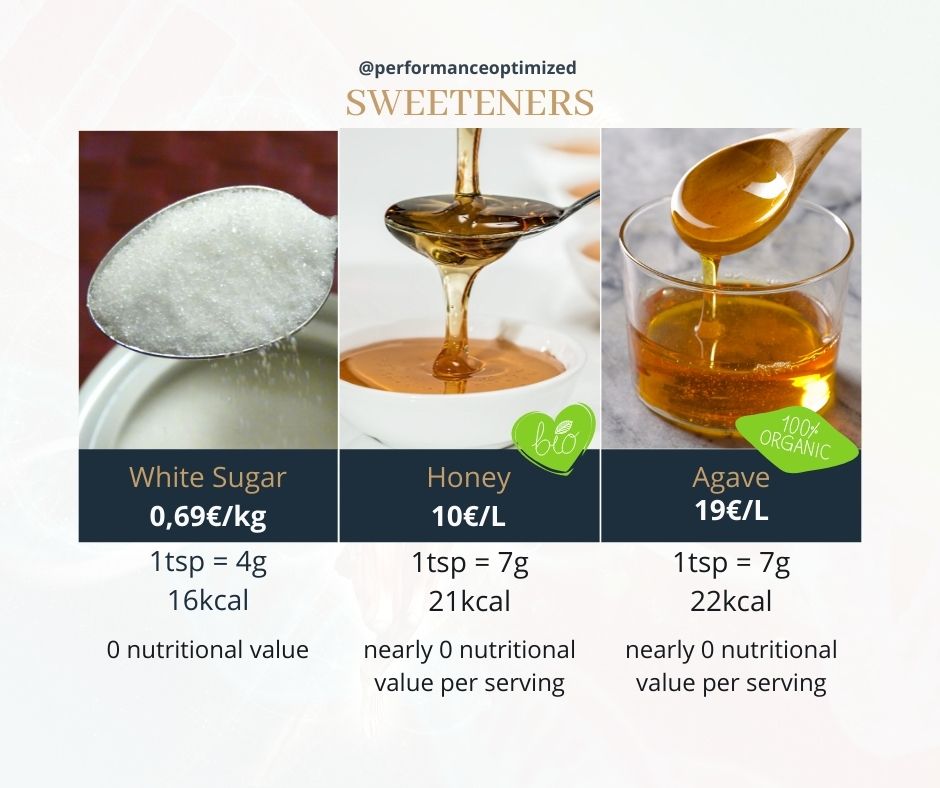Frequently Asked Question
Food
Which rice is better? White or brown?
Nutritionally, it basically doesn’t matter. It is often said that brown rice is less processed, contains more fiber and is therefore better. It has 0.6g per 100g more fiber, which is a negligible amount.
White rice varieties cook faster and are a bit easier to digest.
Try black or red rice if you want to maximize the nutritional value 🙂 Besides, it doesn’t matter.
Rice is not an explicitly nutritious food, but that does not mean that it needs to be removed from your diet. Especially if you have a sufficient intake of fruits or vegetables.
Are low-fat dairy products healthy?
I was also interested in this question. In the case of low-fat products, the fat must be separated from the proteins and sugars in the milk and are therefore more processed than the milk itself. Based on that we could assume that they are a worse choice for health than full-fat products. However, evidence for this conjecture is lacking, and the health benefits of low-fat products for body composition have recently been demonstrated.
You will find more in the comprehensive article: Low-Fat vs Full-Fat Dairy
Should I consume only raw fruits and vegetables?
Some food ingredients like vit. C is degraded during heat treatment, some on the contrary become better absorbable for us when cooked e.g. vit. A. Frozen vegetables retain even more vitamins because they are frozen shortly after harvest.
Consume vegetables in the form that suits you best. If you do not eat enough vegetables and fruits in general, it does not make sense to think about what form is the most nutritious. First and foremost, quantity is important.
It is recommended to consume 400g of fruits / vegetables per day.
Is “food for athletes” automatically more expensive? Can I eat the recommended foods, but buy the cheapest versions? Because in the case of various seeds, kernels or any bran, it is probably important how they are grown and how much they are treated and cleaned. So is quality important or is it enough that I eat them? Or should I not even bother to buy the cheaper ones?
The assumption that food for athletes is more expensive is wrong. This question is similar to whether it is better to eat fresh or cooked vegetables.
It is true that the nutritional value of food is declining (approximately 8% over the last 30 years). The consumption of vegetables and fruits rich in micronutrients is all the more important.
The “labels” that we give to food as organically grown or organic do not necessarily mean more nutritious foods, and in addition, the price-to-nutrient ratio is not better than with conventional foods.
Foods intended for athletes, like supplements, are mainly marketing.
Interestingly, studies that demonstrate the health benefits of fruits and vegetables are all on conventionally grown crops, not organic or organic crops.
It is said that cravings for chocolate is caused by a lack of magnesium. It’s true?
If we follow the narrative that when our body is deficient in magnesium, it craves food that is a source of magnesium, as is chocolate, we can come to this conclusion. However, this is an unconfirmed claim.
If it is magnesium that our body craves, why doesn’t the body “ask” for pumpkin seeds or another source of magnesium? Why chocolate? And what about people who don’t know chocolate – do they experience chocolate cravings that they cannot explain or they simply don’t lack magnesium? 🙂
The taste for chocolate is rather caused by inadequate diet, stress and food placement (you see chocolate, get enough taste for it). For example, if you don’t find time for a good meal during the day, in the evening you will lose your appetite for chocolate … and not for chocolate beans.
It is said that white sugar is not a healthy sweetener, but there are several alternatives. What to choose: honey, coconut sugar, birch sugar or maple syrup?
White sugar, brown sugar, maple syrup, or coconut sugar are almost identical. The main difference is in their use in cooking, taste, and price. Differences in their nutritional value are negligible at normal doses.
The most nutritious sweeteners are honey, chicory syrup, which contains a lot of fiber and is also suitable for diabetics.
Then we have calorie-free sweeteners like xylithol, which you can use to sweeten drinks and not worry about calories.

Supplements
Is spirulina good for immunity?
Yes, it is. According to the study, it looks good for allergic rhinitis. However, if you just want to strengthen immunity, you need to reduce stress and eat enough protein, carbohydrates, fruits, vegetables. Low caloric intake also impairs immunity. Fruits and vegetables remain the first choice 🙂
Vegan & Vegetarian
After switching to a vegetarian / vegan diet, I feel more often cold, have mood swings, less energy.
The usual answer you will get to this question is that you lack vit. B12 or iron. It is possible, but our body can store years worth of B12 vitamin before depleting them. Inadequate iron intake will probably not show up in a week or two either. This problem is typical and in 90% of cases, it is caused by reduced caloric intake. Simply, when the athlete switches a steak with cheese for a mixed spring salad, they reduce their caloric intake dramaticaly.
Caloric deficit results in symptoms like irritability, mood swings, low energy, worse recovery and feeling cold more often.
AVOID THE #1 PERFORMANCE KILLER OF (VEGAN) ATHLETES
After switching to a vegetarian / vegan diet, I do not have enough iron.
This is often associated with the previous problem – insufficient energy intake and secondly, the wrong choice of food. With any dietary changes, it takes us a while to get into new tracks, and in this case it means learning which foods are rich in iron and (lentils, tofu, spinach) and then eating them regularly in sufficient amounts.
Vegan Nutrition with Chris Masterjohn, PhD.
How to get enough protein on a vegan diet?
Getting enough protein on the vegan diet is not complicated but it might take you a while till you get it.
Check the following resources:
Eating tips for traveling vegans?
Check the following resources:
